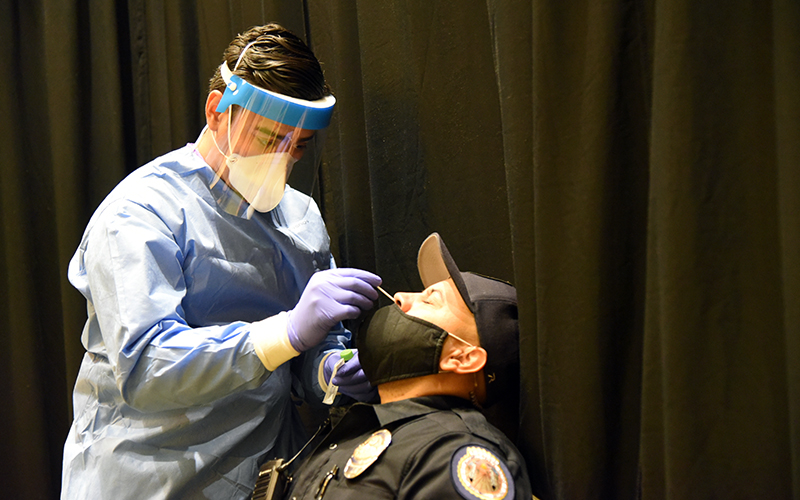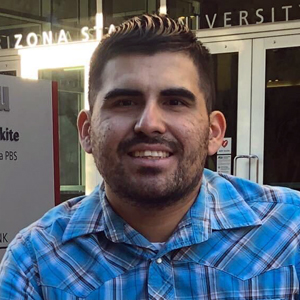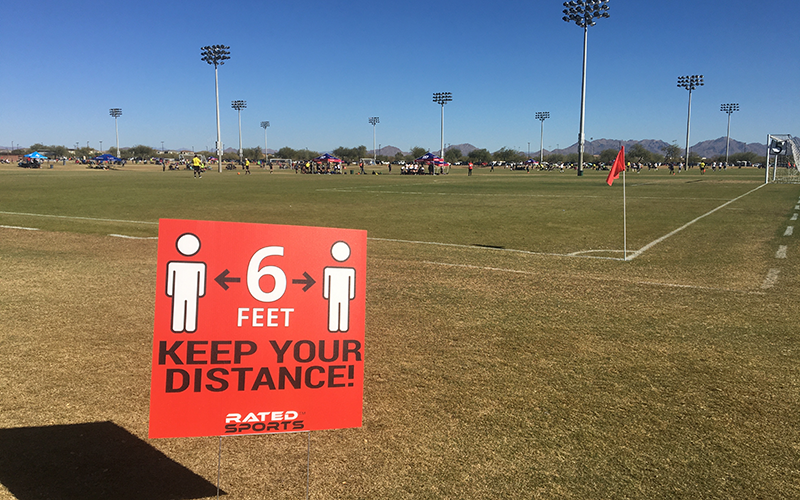
Arizona National Guard service members conduct tests for COVID-19 on the Fort McDowell Yavapai Nation in this file photo from August. Since that time, cases have surged anew, averaging more than 4,300 cases a day for the past seven days, and experts worry things will get worse with both flu season and the holiday season upon us. (Photo by Tech. Sgt. Michael Matkin/U.S. Air National Guard)
WASHINGTON – Arizona reported a record 10,322 new COVID-19 cases Tuesday, more than twice the previous high, as cases surged ahead of a holiday season that one health expert said could be a “real scary time.”
State health officials were quick to point out that Tuesday’s numbers were artificially high because they encompassed a backlog of cases from the four-day holiday weekend.
But the seven-day average for new cases this week still topped 4,300 a day for the first time, renewing fears that hospitals could soon be overwhelmed and sending local governments scrambling to impose new restrictions.
“While today’s higher numbers have a simple explanation due to the long weekend, the numbers are still trending in a concerning direction,” said Dr. Cara Christ, director of the Arizona Department of Health Services, “especially considering that the number of holiday parties and gatherings are expected to increase over the next few weeks.”
The increase in cases brought the state’s total number of confirmed COVID-19 cases to 337,139 as of Tuesday, when an additional 48 deaths brought the state’s pandemic-related death toll to 6,687 since the first case was reported in the state in late January.
This surge is the second in Arizona, which was a national hotspot for the disease this summer when surging cases were blamed on the fact that health protocols were abruptly lifted before Memorial Day weekend, when people congregated for parties and get-togethers.
Health experts fear the trend could repeat itself now as people travel and get together for the winter holidays, a threat that could be made worse by the regular flu season.
Dr. Daniel Derksen, an associate vice president at the University of Arizona Health Sciences, said the holiday trips that many people took this weekend put the state in a dire circumstance in regard to the number of hospital beds.
“The cascade effect of what’s happening right now affects not only the people who have these severe consequences of COVID-19 infection,” he said, “but really limits the ability of the health system to manage all of the other health problems that continue to occur, along with entering the influenza season.”
Derksen said the “real scary time” for public health experts will be the next two to six weeks when holiday travel will ramp up again. But the results could be worse, and they won’t be felt just in Arizona.
“It’s not just Arizona hospitals that are reaching their saturation,” he said. “It’s the whole region.”
Holly Ward, spokesperson for the Arizona Hospital and Healthcare Association, said it’s not unusual to see an increase in hospitalizations in the state during the winter, but COVID-19 adds another layer to that dynamic.
“Typically, in the winter months we see an increase in hospitalizations, but now that we add COVID to this, we’re getting dangerously high in the ICU (intensive care unit) bed utilization that’s happening now,” Ward said.
She said hospitals and health care facilities as a whole have always stood ready to take in any patient, no matter the circumstances, but she urged people to do their part to keep from putting a strain on those “healthcare heroes.”
“Hospitals are there to care for anybody that comes to us,” she said. “But we also rely on our community to do their part to not stress the hospital system with a disease that most of us can prevent catching.”
Local governments across the state have started implementing – or reimposing – precautions to stop the spread of the virus as infections continue to surge.
In Payson, Mayor Tom Morrissey reinstated an emergency proclamation requiring that people wear a face covering in town until further notice. He said there’s a “mutating factor” with the fluidity of the spread of this virus.
The Tucson City Council voted unanimously Tuesday evening to impose a 10 p.m. to 5 a.m. curfew beginning this Friday. The curfew, which starts Friday and runs through Dec. 22, will mean only essential workers can be out during those hours.
The Tucson action was sparked by a memo Friday from the University of Arizona’s COVID-19 Modeling Team that said without action to stop the spread, Arizona “risks a catastrophe on a scale of the worst natural disaster this state has ever experienced.”
Ward said the state learned a lot from the pandemic’s summer surge that has helped it better prepare for the current resurgence.
“Having been through a surge in the summer, we have set up some pretty significant protocol and preparedness as a statewide system,” she said. “We all have a responsibility, but we all have control over ourselves for sure, if not the ability to help our family, friends and community, in doing what we can to stop this.”
Derksen said that while effective COVID-19 vaccines are on the horizon, it might be months before they are available to the general public, and that the challenge of delivering those doses alone will be “quite a logistical endeavor.”
He said the best thing anyone can do is stick to the tried-and-true preventive measures repeated by healthcare experts all year: Wear a mask, maintain your distance, wash your hands and avoid crowds.
“Help’s on the way, but right now, the best measures are the self-help measures that you can do,” Derksen said. “You’re going to get exposed if you’re not careful.”


